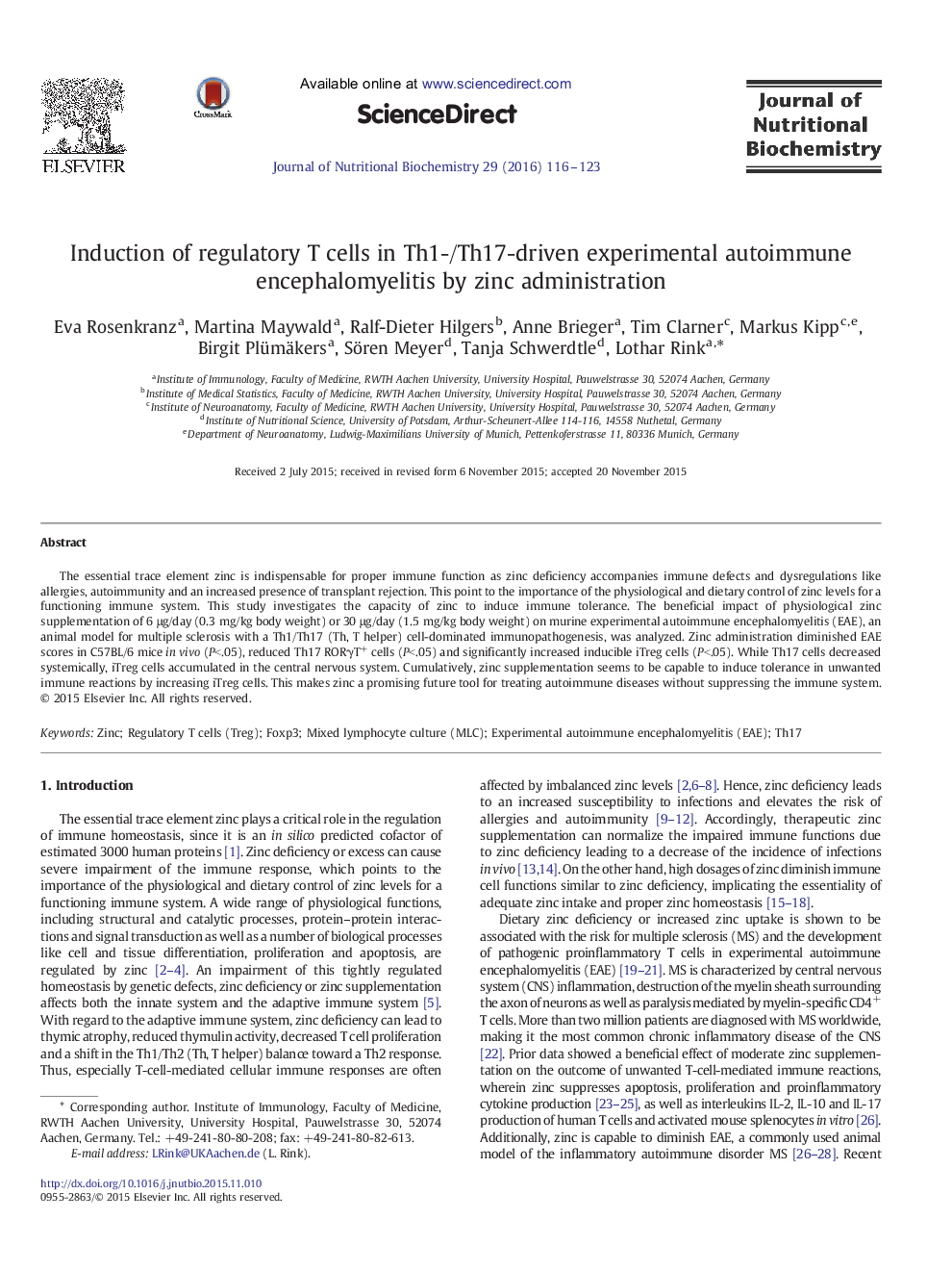| Article ID | Journal | Published Year | Pages | File Type |
|---|---|---|---|---|
| 1989590 | The Journal of Nutritional Biochemistry | 2016 | 8 Pages |
The essential trace element zinc is indispensable for proper immune function as zinc deficiency accompanies immune defects and dysregulations like allergies, autoimmunity and an increased presence of transplant rejection. This point to the importance of the physiological and dietary control of zinc levels for a functioning immune system. This study investigates the capacity of zinc to induce immune tolerance. The beneficial impact of physiological zinc supplementation of 6 μg/day (0.3 mg/kg body weight) or 30 μg/day (1.5 mg/kg body weight) on murine experimental autoimmune encephalomyelitis (EAE), an animal model for multiple sclerosis with a Th1/Th17 (Th, T helper) cell-dominated immunopathogenesis, was analyzed. Zinc administration diminished EAE scores in C57BL/6 mice in vivo (P<.05), reduced Th17 RORγT+ cells (P<.05) and significantly increased inducible iTreg cells (P<.05). While Th17 cells decreased systemically, iTreg cells accumulated in the central nervous system. Cumulatively, zinc supplementation seems to be capable to induce tolerance in unwanted immune reactions by increasing iTreg cells. This makes zinc a promising future tool for treating autoimmune diseases without suppressing the immune system.
